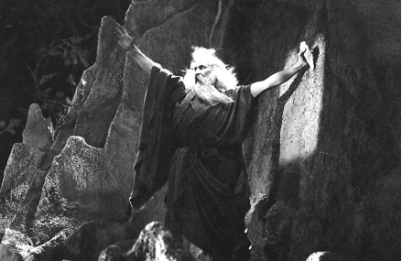A Good Woman
(Mike Barker, USA/UK, 2004, 93 minutes)
Marital bliss is a great burden to place on two people;
sometimes a third person is needed to lighten the load.
--Oscar Wilde
It never fails to amaze me how many movies get off to a good start and then turn bad (or at least mediocre). Either that or they fail to live up to the promise of their opening act--let alone their opening credit sequence.
I can only assume it's because a lot of directors feel that the first act is the most important. Some of the world's worst filmmakers can craft a compelling beginning, but an ending? That's the tricky part.
For my money, even Steven Spielberg, with all his years of experience, almost always fumbles his endings. Of his recent films, Catch Me if You Can is the only exception that comes to mind (granted, I liked the ending to A.I., too, but I seem to be the only one). I often get the impression that he's more concerned about leaving the audience happy than satisfied. But I only like happy endings when they're earned. All of this is to say that A Good Woman is one of those rare films that gets better as it goes along.
For the first two-thirds, in fact, I was concerned that maybe Britain's Mike Barker (The Tenant of Wildfell Hall) wasn't the right man for the job and that the cast, notably Helen Hunt (As Good As It Gets), wasn't up to the task.
Though Barker's direction isn't bad, I expected a more upbeat approach. Based on Oscar Wilde's Lady Windermere's Fan, A Good Woman is stuffed with witty epigrams. The lines are so good they almost sell themselves, but to really bring them home, the actors need to keep things light.
Tuppy (Tom Wilkinson, Wilde's bad guy) and Lord Darlington (Stephen Campbell Moore from Stephen "Wilde" Fry's Bright Young Things, an Evelyn Waugh adaptation with a light touch) come across as effortlessly funny. Mrs. Erlynne (Hunt, who slung many a zinger on Mad About You) comes across as a considerably darker character. Despite her best efforts, her quips never seemed as clever, but by the end, I no longer cared. Cast against type as a predatory female "of a certain age," Mrs. Erlynne was married once--but didn't take to it--and now makes her living by sleeping with rich men.
As the film opens, New York's upper crust has had enough of her, so she sets her sights on the wealthy Mr. Windermere (Mark Umbers, blandly effective). He's married, but that's never stopped her before, so she travels from the States to the Italian coast to pursue her prey. Shortly after arriving in Amalfi, she gets her man and he pays all of her expenses. Meanwhile, Darlington takes after Mrs. Windermere (Scarlett Johansson) as Tuppy takes after Mrs. Erlynne. They've heard the rumors about Mr. Windermere and Mrs. Erlynne, and both feel these women would be better off with them.
I won't say more about the plot than that, because it's in the last act where all the threads come together and what had seemed like faults become strengths. There is, for instance, a major revelation I didn't see coming, although it makes sense in retrospect. Granted, I laughed a few times during A Good Woman (as did the rest of the audience), but not as often as I should have considering the piquancy of the dialogue. And I wouldn't consider it a fault that Johansson wasn't funny as she wasn't given a single comic line. Rather, Meg Windermere is the story's one true innocent, which is to say, a character Wilde could admire, but not one he could relate to. It's with the Lord Darlingtons and Mrs. Erlynnes that his sympathies lie.
Consequently, it's debonair playboy Darlington--a real romantic, as it turns out--who gets to utter the classic line, "All of us are in the gutter, but some of us are looking at the stars." The play may be called Lady Windermere's Fan--and a fan does make a few crucial appearances--but it's really about Mrs. Erlynne. She may not be a "good woman" in the traditional sense of the phrase, but she's Wilde's kind of dame and, unlike the sweet and simple Meg, there's more to her than meets the eye.
While I feared that Hunt's Oscar-caliber seriousness might sabotage the film, her graceful ability to pull off the final scenes saves it from being a Masterpiece Theater-style period piece with lovely scenery, pretty costumes, and an empty head, but something deeper. It isn't a major film, but that near-perfect ending makes A Good Woman very good indeed.
*****
A Good Woman opens on February 3rd. Opening two weeks later is Tristram Shandy: A Cock and Bull Story, which David Jeffers wrote about back in November. Next to 24 Hour Party People, which also features Steve Coogan, it's Michael Winterbottom at his most irreverent. Doesn't add up to a lot, but it's fun while it lasts. Scarlett Johansson image from the IMDb.






